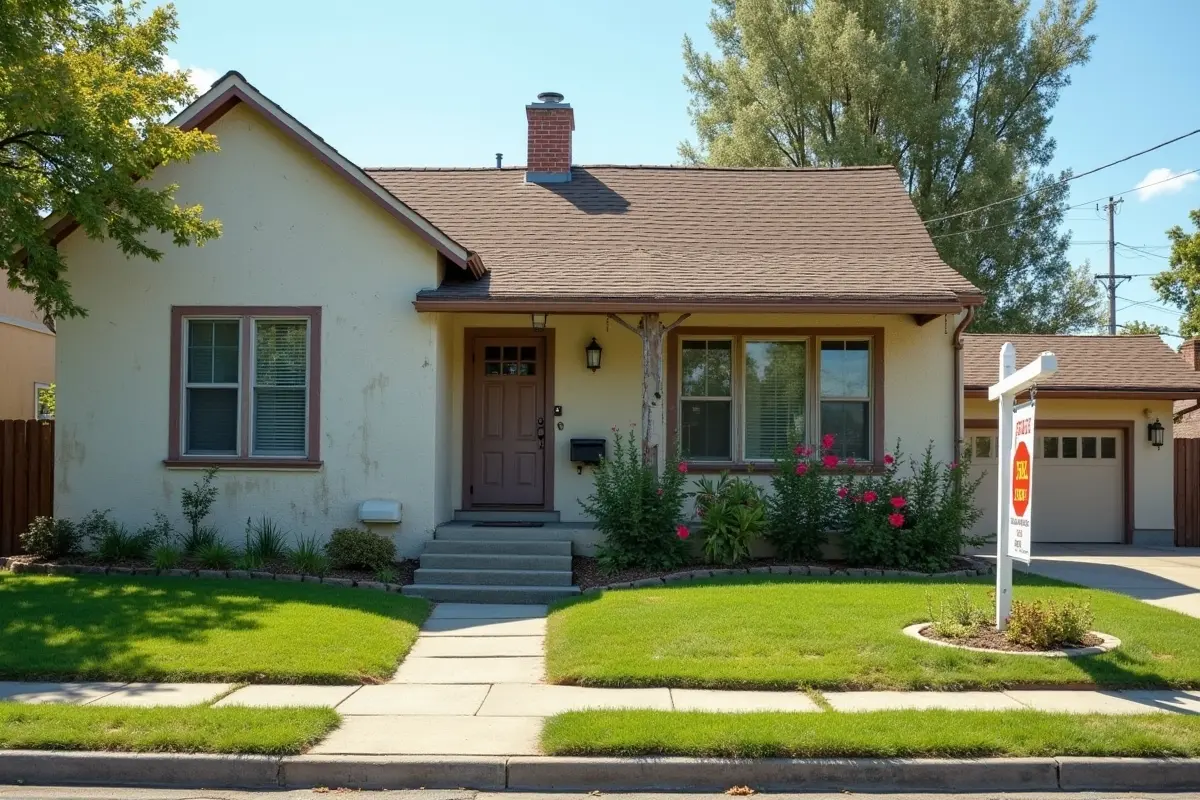When to Sell a House ‘As-Is’ Instead of Renovating First
Choosing to list a house ‘as-is’ means placing your property in its current condition on the market—without investing time and money into repairs or updates. This route is particularly attractive to sellers who want to move quickly or avoid the hassle and expense of fixing issues. For those in the Bellevue area who need a swift solution, using a local company that buys houses in any condition can simplify the process, such as https://www.sellmyhousecompany.com/we-buy-houses-bellevue-wa/.
In an ‘as-is’ sale, buyers understand upfront that they purchase the property exactly as it stands. The seller does not guarantee the condition, which can relieve a lot of the stress and negotiations over needed repairs that typically arise in traditional sales.
However, ‘as-is’ doesn’t mean you can completely forgo your responsibility as a seller. Being transparent with disclosures of known issues is still crucial to avoid future legal challenges and build trust with potential buyers. This method often draws interest from experienced buyers—such as investors and house flippers—who have the capacity and vision to see the property’s potential after necessary renovations.
Current housing market dynamics can influence your decision. Researching whether you’re in a seller’s or buyer’s market can provide useful insights and impact your home’s selling timeline and price. According to Rocket Mortgage, understanding how much work your home needs and what buyers expect in your area can further inform your choice between renovating or selling as-is.
Pros of Selling ‘As-Is’
- Faster Sale: By skipping renovations, you can list your property immediately, making it ideal for those needing a quick sale—like job relocations, inheritance situations, or financial difficulties.
- Reduced Upfront Costs: Without the burden of expensive repairs, you can allocate those resources elsewhere, especially if funds are tight.
- Attracting Investors: Many cash buyers, investment firms, and flippers are actively looking for properties needing updates for potential profit margins, making them a ready-made target market for as-is homes.
Cons of Selling ‘As-Is’
- Lower Sale Price: Buyers frequently expect a notable discount to compensate for the cost and effort needed to fix up the property, which can reduce your overall proceeds from the sale.
- Limited Buyer Pool: Most traditional buyers—especially those looking for move-in-ready homes—may be deterred, shrinking the group of interested parties. However, working with a trusted home-buying company like https://www.sellmyhousecompany.com/ can simplify the process by connecting you with buyers who purchase properties as-is for cash.
- Potential for Longer Time on Market: Depending on location and market conditions, homes sold as-is don’t always fly off the market, particularly if they have significant structural or cosmetic issues.
When to Consider Selling House ‘As-Is’
There are several circumstances where listing your home as-is is likely the best (or even the only) viable option:
- Financial Constraints: If you simply lack the funds for necessary repairs or upgrades—especially if the issues are major ones like roofing, plumbing, or foundation problems—selling as-is can relieve you from the financial burden and stress.
- Urgent Time Constraints: Life changes such as divorce, relocation, or inheriting unwanted property can all lead to the need for a fast and uncomplicated sale.
- Challenging Market or Condition: Some homes, especially those needing extensive repairs, may not be eligible for traditional mortgage financing, making as-is sales targeted to cash buyers or investors more practical.
- Properties in Hot Markets: In competitive markets where demand outweighs supply, even homes needing work may attract strong attention from buyers looking for renovation projects—a trend highlighted by recent reports from Kiplinger.
Alternatives to Selling House ‘As-Is’
If you’re hesitant about going the as-is route but aren’t able or willing to renovate extensively, there are alternative strategies that might bring in more buyers or a better price:
- Minor Repairs: Addressing inexpensive cosmetic issues—like a fresh coat of paint, new hardware, or landscaping—can often provide a solid return for minimal investment.
- Offering Repair Credits: Instead of undertaking repairs yourself, offer buyers a credit so they can handle the renovations post-purchase. This approach can help keep your sales moving without having to delay for renovations.
- Targeting Specific Buyers: Intentionally market your property to real estate investors or those searching for a fixer-upper, as they’re more likely to appreciate a renovation project’s opportunity.
Legal Considerations
Even in an as-is sale, you must disclose any known or material defects affecting the home. Failing to do so can expose you to future legal claims and jeopardize your reputation and finances. Be sure to accurately fill out all disclosure forms according to your state’s regulations. Full transparency will not only protect you but also foster trust with buyers, improving the odds of a smooth transaction and closing.
Final Thoughts
Deciding whether to sell your house as-is or invest in improvements depends on your financial situation, timeline, and the property’s current state. In some cases, the speed and simplicity of an as-is sale outweigh the potential for higher proceeds after renovations. By closely examining your options, disclosing known issues, and exploring alternatives, you’ll be better prepared to make a decision that meets your needs—whether that’s a quick sale or a higher price down the line.

